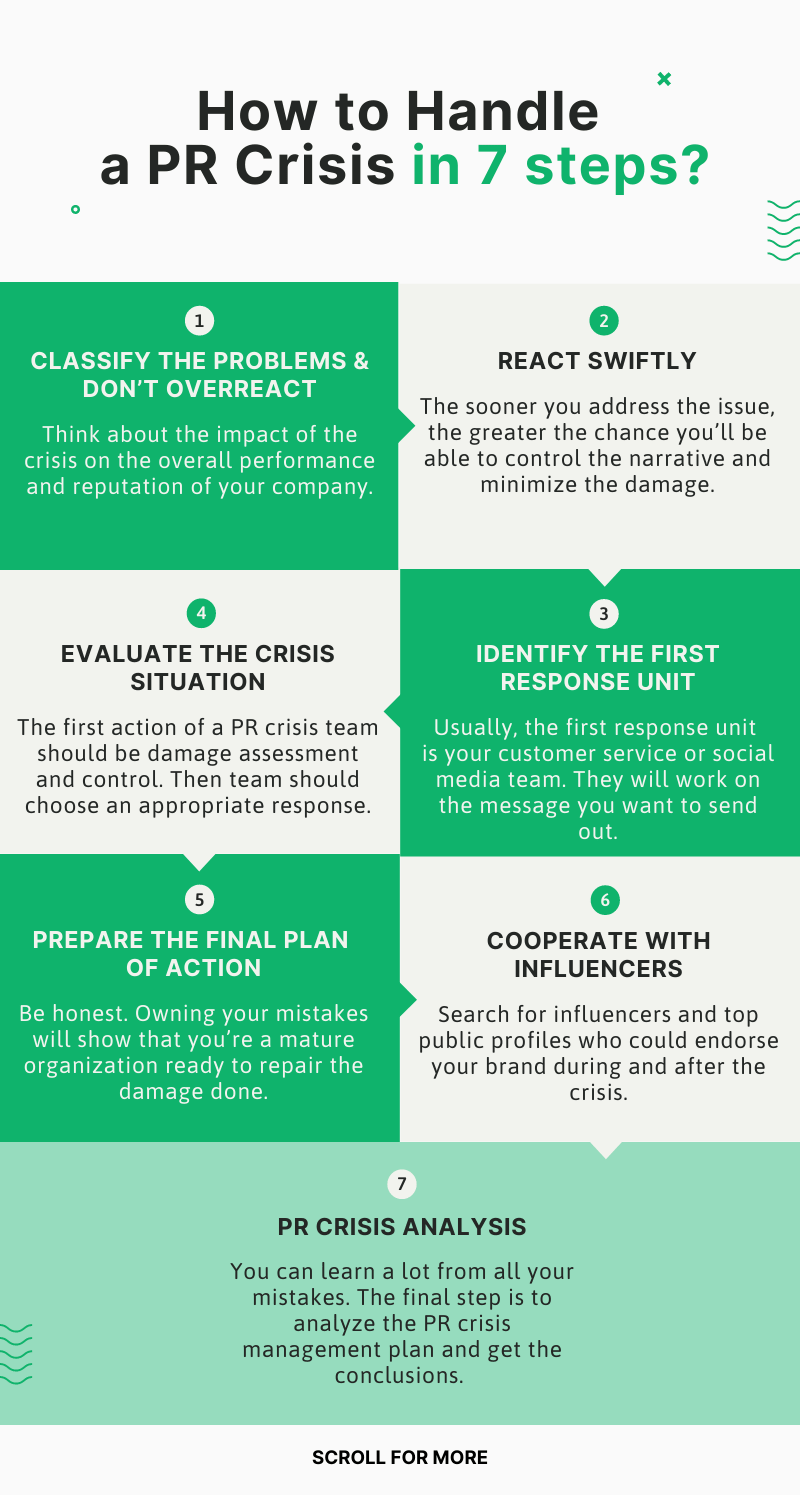Mastering Crisis: 5 Marketing Tips!
In today’s fast-paced and ever-changing business landscape, it’s crucial for companies to have a strong crisis management strategy in place. Whether it’s a social media PR nightmare or a product recall, how a company handles a crisis can make or break its reputation. That’s why we’ve put together these 5 essential tips for mastering crisis management in your marketing strategy.
1. Be Proactive, Not Reactive
The key to successful crisis management is to be proactive, not reactive. This means having a plan in place before a crisis even occurs. Identify potential risks and vulnerabilities in your marketing strategy, and develop a plan for how you will respond to each one. By being prepared, you can minimize the impact of a crisis and control the narrative.
2. Communicate Openly and Honestly

Image Source: brand24.com
In the midst of a crisis, it’s important to communicate openly and honestly with your customers and stakeholders. Transparency builds trust, and being upfront about the situation can help to mitigate the damage to your brand. Keep your messaging consistent across all channels, and make sure to address any concerns or questions promptly.
3. Monitor Social Media
In today’s digital age, social media can make or break a company during a crisis. Make sure to monitor social media channels closely during a crisis, and be prepared to respond to any negative comments or misinformation. Engage with your audience in a respectful and empathetic manner, and use social media as a tool to keep your customers informed and updated.
4. Learn from Past Mistakes
Every crisis presents an opportunity for growth and learning. After the dust has settled, take the time to analyze what went wrong and how you can prevent similar crises in the future. Conduct a post-mortem analysis with your team, and make any necessary changes to your crisis management strategy. By learning from past mistakes, you can become better prepared for future crises.
5. Stay Calm and Collected
In the midst of a crisis, it’s easy to panic and make rash decisions. However, it’s important to stay calm and collected, and approach the situation with a clear head. Keep a level tone in your communications, and avoid making any hasty decisions that could further escalate the crisis. Remember, a crisis is temporary, but the way you handle it can have lasting effects on your brand.
In conclusion, mastering crisis management in your marketing strategy is essential for the long-term success of your company. By being proactive, communicating openly and honestly, monitoring social media, learning from past mistakes, and staying calm and collected, you can navigate any crisis with confidence and come out stronger on the other side. So remember these 5 essential tips, and you’ll be well-equipped to handle any crisis that comes your way.
Stay Cool, Stay Strong: Crisis Management Guide
In today’s fast-paced and competitive business world, it’s essential for companies to have a solid crisis management strategy in place. No matter how well you plan and execute your marketing campaigns, unforeseen crises can arise that threaten to derail your efforts. That’s why it’s crucial to stay cool and stay strong in the face of adversity. Here are five essential tips for crisis management in your marketing strategy:
1. Anticipate Potential Crises: The first step in effective crisis management is to anticipate potential crises before they happen. Take the time to assess your marketing campaigns and identify any weak points or areas of vulnerability. By proactively addressing these issues, you can minimize the impact of any crises that may arise.
2. Develop a Crisis Communication Plan: When a crisis does occur, it’s important to have a clear and concise communication plan in place. This plan should outline how you will communicate with your team, stakeholders, and the public in the event of a crisis. By having a plan in place, you can ensure that your messaging is consistent and timely, helping to maintain trust and credibility with your audience.
3. Monitor Social Media and Online Channels: In today’s digital age, social media and online channels play a significant role in shaping public perception. During a crisis, it’s crucial to monitor these channels closely and respond swiftly to any negative feedback or misinformation. By staying engaged and addressing concerns in a timely manner, you can help to minimize the impact of the crisis on your brand.
4. Remain Transparent and Authentic: One of the most important aspects of crisis management is to remain transparent and authentic in your communications. Be honest about the situation, acknowledge any mistakes that were made, and outline the steps you are taking to address the crisis. By being open and honest with your audience, you can build trust and credibility, even in the face of adversity.
5. Learn and Adapt: Finally, it’s important to learn from each crisis and use that knowledge to improve your crisis management strategy moving forward. Take the time to conduct a post-crisis debrief with your team to evaluate what went well and what could be improved. By continuously learning and adapting, you can strengthen your crisis management capabilities and better prepare for future challenges.
In conclusion, effective crisis management is a critical component of any successful marketing strategy. By anticipating potential crises, developing a clear communication plan, monitoring social media channels, remaining transparent and authentic, and learning from each crisis, you can stay cool and stay strong in the face of adversity. So remember, when the going gets tough, the tough get going!
Tips for Effective Crisis Management in Your Marketing Strategy